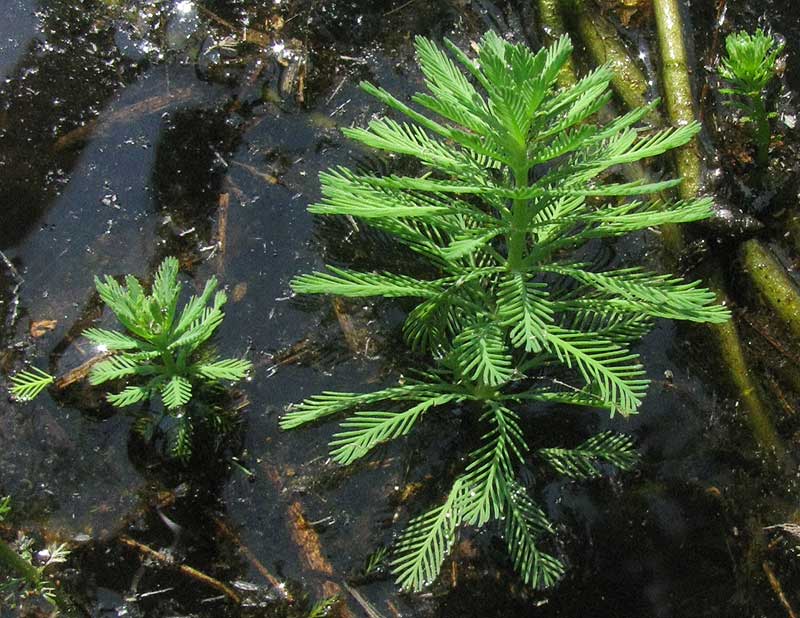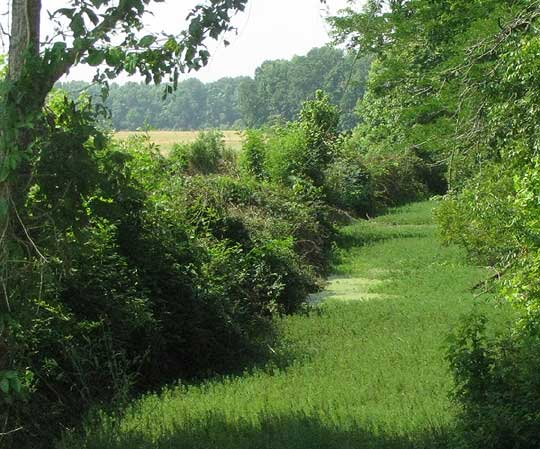Excerpts from Jim Conrad's
Naturalist Newsletter

from the the May 27, 2012 Newsletter issued from the woods of the Loess Hill Region a few miles east of Natchez, Mississippi, USA
PARROTFEATHER IN A DITCH
If you want to see a summery, pastoral shot showing a stream between a bottomland woods and a wheat field, take a look below:

If you're surprised to find wheat being grown in southwestern Mississippi, the way it works is that wheat is planted in the winter, harvested in the spring, then the same ground is planted in cotton for the upcoming long summer season.
Something interesting about the picture is that the stream -- actually a "channelized" drainage ditch -- is choked with some kind of frilly-leafed vegetation. You can see the plant close-up, its submerged tough, ropy stems with feathery, bright green tufts of whorled leaves prettily emerging from the water at the top of this page.
This is Parrotfeather, MYRIOPHYLLUM AQUATICUM, native to the Amazon River Basin, but now a serious aquatic weed in much of the world with warmer weather. It's reported to have been introduced into the US in the Washington, DC area about 1890. However, it's commonly sold for aquaria and aquatic gardens and has escaped many times since. Parrotfeather can clog larger streams and even lakes just as you see in our ditch.
Parrotfeather is hard to get rid of. Physically removing it usually doesn't work, since small parts left behind sprout new plants, so you just get more plants. Even herbicides don't work well because a waxy cuticle on emergent stems and leaves repels herbicides. Biological control might work, but so far no bug or disease to serve as an agent has been found for it. On the Internet you can find hundreds of pages describing efforts of local water districts all across America spending hundreds of thousands of dollars clearing Parrotfeather from channels. But also at PondMegastore.com you can buy it ("Buy more and save!"), $2.70 per bunch, fewer than five bunches not sold.